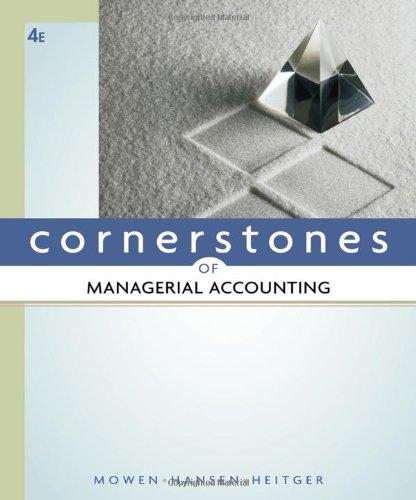

Superior Markets, Incorporated, operates three stores in a large metropolitan area. A segmented absorption costing income statement for the company for the last quarter is given below: Superior Markets, Incorporated Income Statement For the Quarter Ended September 30 Total $3,240,000 1,789,776 South Store $ 1,296,000 East Store $ 1,166,400 Sales North Store $ 777,600 435,456 342,144 Cost of goods sold. 712,800 641,520 Gross margin 1,450,224 583,200 524,880 Selling and administrative expenses: Selling expenses 249,912 340,200 292,248 Administrative expenses 162,972 136, 188 882,360 413,640 1,296,000 $ 154,224 114,480 364,392 Total expenses 503,172 428,436 Net operating income (loss) $ (22,248) $ 80,028 $ 96,444 The North Store has consistently shown losses over the past two years. For this reason, management is giving consideration to closing the store. The company has asked you to make a recommendation as to whether the store should be closed or kept open. The following additional information is available for your use: a. The breakdown of the selling and administrative expenses that are shown above is as follows: Total North Store South Store East Store Selling expenses: Sales salaries $ 75,600 $ 96,120 $ 258,120 201,960 Direct advertising 55,080 77,760 $ 86,400 69,120 17,496 General advertising 48,600 11,664 19,440 Store rent 324,000 91,800 129,600 102,600 17,280 4,968 6,480 5,832 Depreciation of store fixtures Delivery salaries 22,680 7,560 7,560 7,560 Depreciation of delivery equipment. 9,720 3,240 3,240 3,240 Total selling expenses $ 882,360 $ 249,912 $ 340,200 $ 292,248 "Allocated on the basis of sales dollars. Total North Store South Store East Store Administrative expenses: $ 75,600 $ 22,680 $ 32,400 Administrative expenses: Store managers' salaries General office salaries* Insurance on fixtures and inventory Utilities 54,000 27,000 12,960 8,100 21,600 9,720 $ 20,520 19,440 9,180 114,480 33,480 43,200 37,800 Employment taxes 61,560 17,820 23,652 20,088 General office-other* 81,000 19,440. 32,400 29,160 Total administrative expenses $ 413,640 $ 114,480 $ 162,972 $ 136, 188 *Allocated on the basis of sales dollars. b. The lease on the building housing the North Store can be broken with no penalty. c. The fixtures being used in the North Store would be transferred to the other two stores if the North Store were closed. d. The general manager of the North Store would be retained and transferred to another position in the company if the North Store were closed. She would be filling a position that would otherwise be filled by hiring a new employee at a salary of $11,880 per quarter. The general manager of the North Store would continue to earn her normal salary of $12,960 per quarter. All other managers and employees in the North store would be discharged. e. The company has one delivery crew that serves all three stores. One delivery person could be discharged if the North Store were closed. This person's salary is $4,320 per quarter. The delivery equipment would be distributed to the other stores. The equipment does not wear out through use, but does eventually become obsolete. f. The company pays employment taxes equal to 15% of their employees' salaries. g. One-third of the insurance in the North Store is on the store's fixtures. h. The "General office salaries" and "General office-other" relate to the overall management of Superior Markets, Incorporated. If the North Store were closed, one person in the general office could be discharged because of the decrease in overall workload. This person's compensation is $6,480 per quarter. Required: 1. How much employee salaries will the company avoid if it closes the North Store? 2. How much employment taxes will the company avoid if it closes the North Store? 3. What is the financial advantage (disadvantage) of closing the North Store? 4. Assuming that the North Store's floor space can't be subleased, would you recommend closing the North Store? 5. Assume that the North Store's floor space can't be subleased. However, let's introduce three more assumptions. First, assume that if the North Store were closed, one-fourth of its sales would transfer to the East Store, due to strong customer loyalty to Superior Markets. Second, assume that the East Store has enough capacity to handle the increased sales that would arise from closing the North Store. Third, assume that the increased sales in the East Store would yield the same gross margin as a percentage of sales as present sales in the East store. Given these new assumptions, what is the financial advantage (disadvantage) of closing the North Canon










